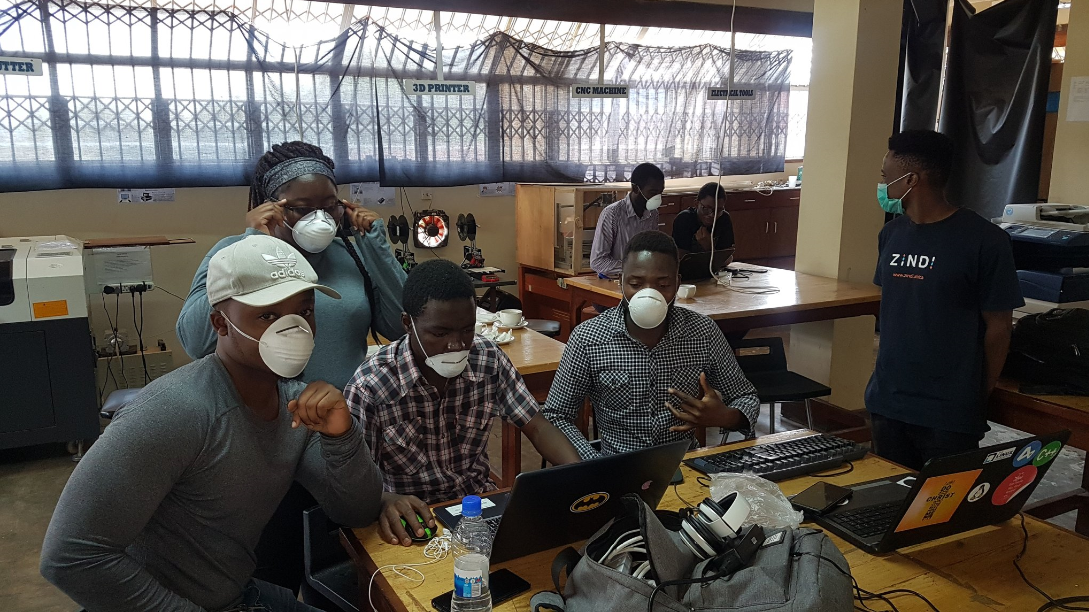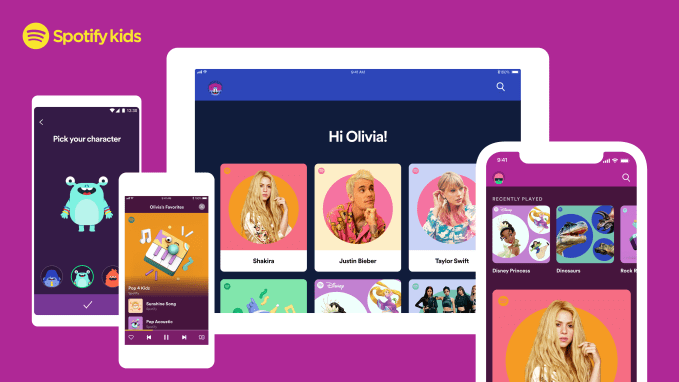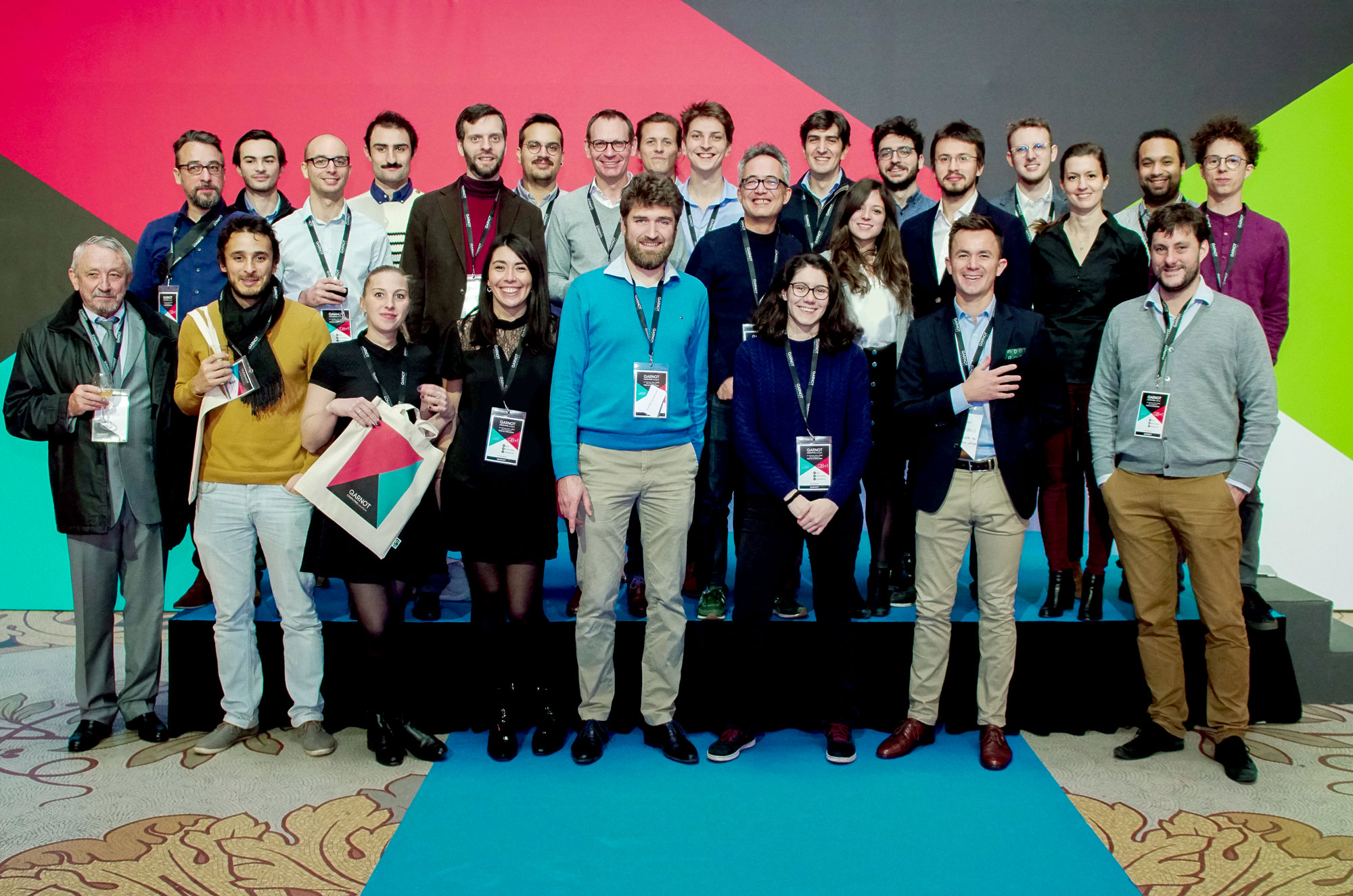EV startup Damon Motorcycles has acquired the IP of Mission Motors, raised $3 million in funding and announced a special production run of its debut model.
The Vancouver-based venture unveiled the 200 mph Hypersport in January and began taking pre-orders for the e-moto, with a base price of $24,995. Damon has positioned its EV entry as an ultra-fast, smart and safe motorcycle.
In addition to its go-straight-to-jail top-speed, the Hypersport boasts 200 miles of highway range, 147 ft-lbs of torque, charges to 80% in 20 minutes and weighs less than 500 pounds, Damon CEO Jay Giraud told TechCrunch earlier this year.
These features, along with digitally controlled riding-modes, are just part of Damon’s signature. The seed-stage startup has also engineered the cloud-connected Hypersport with proprietary safety and ergonomics technology that provide adjustable riding positions and blind-spot detection.

Image Credits: Damon Motorcycles
Damon packed a lot into its latest announcement and shared some insight on appealing to the elusive millennial market and weathering the economic tremors of the COVID-19 crisis.
On the acquisition, the startup purchased the IP of Mission Motors, a now defunct San Francisco e-motorcycle venture that powered down in 2015. Though Mission’s EV development outran its capital, the company’s motorcycles achieved a number of performance benchmarks and captured the attention of Jay Leno.
Mission Motors was also one of first e-moto companies to roll into the competition arena, fielding an entry in the famed Isle of Man TT race in 2009.
Damon will draw on Mission’s product and racing tech, including the company’s full stack development for EV drive-trains and battery power.
“There are certain bits of that we’re going to roll into the commercialized Hypersport,” Damon COO Derek Derek Dorresteyn told Techcrunch on a call with CEO Jay Giraud.
“Specifically, we’re using the motor development that they had as a platform to advance our motor design…We’re looking at achieving 12 newton-meters per kilogram of torque output from an electric motor,” Dorresteyn said.
Giraud explained that could translate to Damon producing an electric motorcycle with roughly 160 kilowatts of power, 200 horsepower and 200 ft-lbs of torque. That would outdo one of the fastest production e-motorcycles, Energica’s EGO, with 145 horsepower and 159 ft-lbs of torque.

Energica’s Ego, Image Credits: TechCrunch
On funding, Damon Motors now has $3 million in additional capital, raised at the pre-seed level from undisclosed angel investors.
The startup will use the backing on product development and accelerating time to market, Giraud said.
Damon’s founder also noted that the company was on track to fill its initial target of 1000 pre-orders for both its Hypersport standard and Premiere models. As such, the startup will extend orders on a limited run, $34,995 Hypersport Premiere founder edition in two different color-schemes: Arctic Sun and Midnight Sun.
Damon is highlighting the demographics of those placing deposits on its Hypersport e-motorcycles.
“Half the people ordering are under the age of 40,” said Giraud. “It really speaks to product market fit.”
The ability to draw millennials to motorcycle purchases is significant, given they’ve been the hardest market segment to crack. Young buyers used to be a mainstay of the industry, but the last 10 years have seen sharp declines in motorcycle ownership by everyone under 40, according to Motorcycle Industry Council stats.
Damon believes its proprietary tech and plans for a direct-to-consumer sales and service model can attract affluent younger buyers and the Tesla crowd to its fast and safe motorcycles.
Though TechCrunch hasn’t yet ridden a Hypersport, the two-wheeler’s specs offer unique features compared to any current production gas or electric motorcycle. On safety, Damon’s CoPilot system uses sensors, radar and cameras to track moving objects around the motorcycle and alert riders to danger.

Image Credits: Damon Motorcycles
The startup’s debut EV also brings smart ergonomics in Damon’s patented Shift system that allows riders to electronically adjust the motorcycle’s windscreen, seat, foot-pegs and handlebars to different riding positions and conditions.
Even with the demand Damon has seen for the Hypersport, it still faces a stagnant motorcycle market that has become crowded with EV competitors.
Harley Davidson introduced its all electric LiveWire in 2019, becoming the first of the big gas manufacturers to offer a street-legal e-moto for sale in the U.S.
Harley’s entry followed several failed electric motorcycle startups — including Mission Motors — and put it in the market with existing EV ventures, such as Italy’s Energica and U.S. startup Zero — which launched its $19,000, 120 mph SR/F in 2019.
On top of strong competition in the e-moto space, there’s a growing uncertainty on the buying appetite for motorcycles of any kind that could exist for the remainder of 2020, and potentially beyond, given the COVID-19 pandemic gripping the world.
As of this week, Harley Davidson had halted all motorcycle production due the coronavirus and Energica confirmed to TechCrunch it had shutdown all operations per a decree of the Italian government.
Zero Motorcycles — located in Scott’s Valley, California — is still producing motorcycles “following the standard health orders of the CDC”, according to a company spokesperson.
Damon’s leadership believes the company can power through whatever lies ahead. The company has a global supply-chain across Europe, Asia and North America, but builds its battery packs and assembles its motorcycles in Canada.
“There are real challenges to get anyone to do anything today. We don’t expect that to be true forever,” COO Derek Dorresteyn said of supply-chain and meeting production demand.
CEO Jay Giraud believes the current situation with COVID-19 will likely create an economic slump that could drag on longer than the 2008 Great Recession.
On how Damon Motorcycles will manage, “Like every core startup in the world, we’re gonna have to raise a lot of money no matter what. But we’re in a good place right now,” he said.
from TechCrunch https://ift.tt/39y4Jkm




























